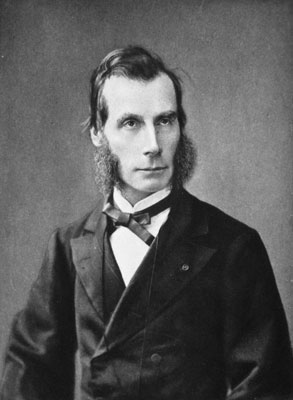Numa Denis Fustel de Coulanges facts for kids
Numa Denis Fustel de Coulanges (born March 18, 1830 – died September 12, 1889) was an important French historian. He is best known for his book The Ancient City, published in 1864. In this book, he suggested that religion was the main reason why ancient societies like Greece and Rome grew and changed.
Fustel de Coulanges believed that families and states were held together by religious beliefs, especially the worship of ancestors. He thought that families, then larger groups like clans (called gens by Romans or phratries by Greeks), and eventually city-states, all formed because people shared the same religious practices. He also argued that when people started to lose their religious faith, it led to problems for the Roman Republic and eventually to the rise of Christianity.
Contents
About Numa Denis Fustel de Coulanges
Numa Denis Fustel de Coulanges was born in Paris, France. After studying at the École normale supérieure, a famous French school, he went to the French School at Athens. In 1853, he helped with some archaeological digs in Chios, an island in Greece. He also wrote a history of the island.
When he returned to France, he became a teacher. He earned his doctorate degree in 1858. Even early on, his special way of studying history was clear. He knew a lot about ancient Greek and Roman languages and customs. He preferred to read the original texts directly, without letting his own political or religious views influence him.
Teaching and The Ancient City
From 1860 to 1870, Fustel de Coulanges was a history professor at the University of Strasbourg. It was there that he published his most famous book, La Cité antique (which means The Ancient City). In this book, he strongly showed how religion played a key role in the political and social development of Greece and Rome.
The book was very well-written and full of interesting ideas. It became one of the most important French books of the 19th century. Fustel de Coulanges strongly believed in his theories. Even when he updated the book later, he made very few changes to his main ideas.
Later Work and Ideas
In 1870, Fustel de Coulanges became a lecturer in Paris. He later became a professor at the Sorbonne in 1878. There, he started to study the political systems of ancient France. The Franco-Prussian War, when German armies invaded France, made him think about the Germanic invasions of the Roman Empire.
He argued that these invasions were not as violent as many people thought. He believed that the Germanic tribes slowly moved into Gaul (ancient France). He also thought that the German invaders followed the Roman government's rules. He suggested that the political systems of the Merovingian dynasty (an early French royal family) came from Roman laws as much as, or even more than, from German customs. This meant he believed that Gaul was not simply "conquered" by the Germans.
He wrote about these ideas in his book Histoire des institutions politiques de l'ancienne France (History of the Political Institutions of Ancient France). This work was very detailed and based on careful study of old texts. He published several volumes of this work, covering topics like Roman Gaul, the Germanic invasion, and the early French monarchy.
Life and Legacy
Fustel de Coulanges spent most of his life teaching and writing books. In 1875, he became a member of the Académie des Sciences Morales et Politiques, a respected French academy. In 1880, he became the director of the École Normale.
He was very interested in how France could improve its government and society after the fall of the empire and the war. He wanted current institutions to be more like those of the past. He died in Massy, France, in 1889.
Fustel de Coulanges always aimed to find the truth in history. He was known for his deep knowledge, talent, and honest approach to his work.
Main Books
- Quid Vestæ Cultus in Institutis Veterum Privatis Publicisque Valuerit?, 1858.
- La Cité antique (The Ancient City), 1864.
- Histoire des Institutions Politiques de l'Ancienne France (History of the Political Institutions of Ancient France), starting in 1874.
- Recherches sur quelques problèmes d'Histoire (Research on Some Historical Problems), 1885.
- Nouvelles Recherches sur Quelques Problèmes d'Histoire (New Research on Some Historical Problems), 1891.
- Questions historiques (Historical Questions), 1893.
See also
 In Spanish: Fustel de Coulanges para niños
In Spanish: Fustel de Coulanges para niños
 | Roy Wilkins |
 | John Lewis |
 | Linda Carol Brown |


